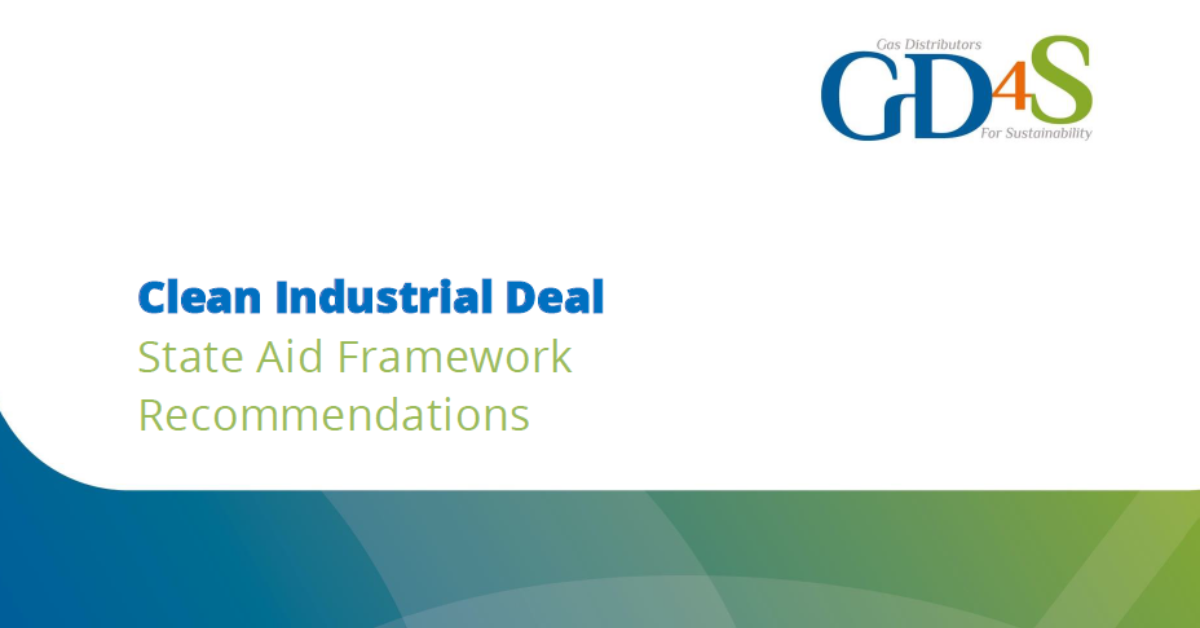Gas Distributors for Sustainability (GD4S) has submitted a detailed response to the European Commission’s public consultation on the draft Clean Industrial Deal State Aid Framework. While supportive of the framework’s objectives, GD4S highlights several areas requiring revision to ensure the framework enables an inclusive, efficient, and technology-neutral energy transition.
Emphasising the Role of Biomethane and Renewable Hydrogen
The response stresses the importance of biomethane and renewable hydrogen in decarbonising industry and supporting the EU’s climate goals. Both energy vectors offer immediate and scalable solutions, particularly for sectors that are difficult to electrify, and should be equally supported under the framework.
The current proposal’s focus on Renewable Fuels of Non-Biological Origin (RFNBOs) risks excluding other renewable hydrogen pathways, such as those based on biomass. GD4S proposes that all forms of renewable hydrogen that meet EU sustainability and GHG reduction criteria should be eligible for support.
Supporting a Technology-Neutral Approach
GD4S advocates for a genuinely technology-neutral approach. Eligibility for state aid should be determined by verified GHG savings rather than production methods. Arbitrary blending requirements and narrow fuel definitions risk undermining this principle and deterring investment in viable technologies.
Infrastructure and Sector Integration
The response calls for greater investment in connecting renewable gas production facilities—such as biomethane and renewable hydrogen plants—to existing gas infrastructure. The promotion of hybrid solutions and sector coupling (e.g. smart cogeneration) is seen as key to improving system flexibility, reducing electricity grid congestion, and lowering energy costs.
Industrial Decarbonisation and Regulatory Alignment
GD4S underlines the need for broader recognition of renewable and low-carbon gases as viable options for industrial heat decarbonisation. The response challenges the current prioritisation of certain technologies in Section 73 of the draft, calling instead for regulatory coherence with the Energy Efficiency Directive (EED) and the Net Zero Industry Act (NZIA).
The use of biomethane and hydrogen enables high-temperature heat without requiring major facility overhauls, preserving industrial competitiveness while achieving emissions reductions.
Flexibility in Permitting and Timelines
Given the varying permitting durations across Member States and project types, GD4S recommends the framework adopt a more flexible stance on project timelines. Where delays are outside the control of project promoters, provisions should be included to avoid penalties or disqualification from aid.
Broader Support for Clean Technologies
The framework should ensure consistent support across the full CCUS (Carbon Capture, Utilisation, and Storage) value chain—not only the capture component. Similarly, aid for clean technology manufacturing should align with clearly defined market needs and regulatory priorities.
Conclusion
GD4S’s response highlights the need for a framework that upholds technology neutrality, encourages flexibility, and supports the diverse range of sustainable solutions required to decarbonise European industry effectively and efficiently.
